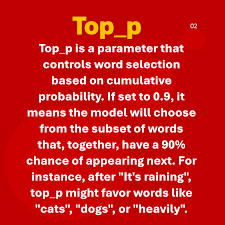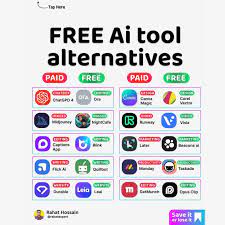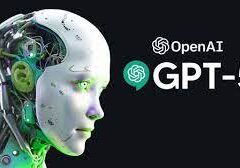It’s more likely that you vacationed on Gilligan’s island than remain unfamiliar with ChatGPT. Since its introduction, this tool has emerged as an essential extension to Salesforce solutions, owing to its remarkable generative AI capabilities. From automating content creation to validating rules ChatGPT excels in some areas. By crafting Apex code, developing Lightning Web Components (LWC), summarizing conversations, and composing knowledge articles, ChatGPT has demonstrated its value. The integration of Chat GPT and Salesforce holds the potential to streamline substantial segments of organizational processes, leading to significant time savings. This not only enhances CRM data management, now fortified by generative AI, but also elevates the customer experience to unprecedented heights.
While Salesforce has its own Einstein AI tools, Chat GPT and Salesforce remain a viable tool combination.
This article will explore in detail how ChatGPT can seamlessly integrate with Salesforce.
Understanding ChatGPT:
When I questioned ChatGPT about its nature, and its response is as follows:
ChatGPT is a language model created by OpenAI. It operates as a deep generative language neural network, having been trained on an extensive volumes of text to generate coherent and meaningful responses to user queries and commands.
In essence, ChatGPT is essentially a chatbot, akin to Einstein bots. However, it distinguishes itself with its robust capabilities. Developed on the OpenAI GPT-3.5 family of large language models, incorporating both supervised and reinforcement learning techniques, ChatGPT has been trained on an extensive dataset of internet text up until January 2022. It excels in natural language processing tasks such as text generation, question answering, translation, and text classification. The underlying technology of ChatGPT is sophisticated, evolving continually through the application of machine learning and deep learning techniques.
In 2023, OpenAI introduced two new models: ChatGPT-3.5 Turbo and ChatGPT-4, with the latter being notably superior. For instance, GPT-4 is multimodal, adept at processing both textual and visual inputs, comprehending and describing images effectively. It has also reduced the likelihood of generating nonsensical or “AI hallucinations” by 19-29%.
In terms of security, GPT-4 incorporates robust measures from the outset, generating only 0.73% “toxic” responses compared to GPT-3.5’s 6.48%. It excels in maintaining context, with enhanced memory of the conversation, and improved context length to handle more extensive inputs. In summary, the mentioned improvements position GPT-4 as a more advanced and versatile option.
ChatGPT Models:
Every AI tool relies on models to discern patterns and make decisions from data. The OpenAI API is powered by a family of models with distinct capabilities and pricing scales. Users can also tailor their base models for specific use cases. The primary models include:
- GPT-4 and GPT-4 Turbo: Enhancements over GPT-3.5, capable of comprehending and generating natural language or code.
- GPT-3.5: Improvements over GPT-3, competent in comprehending and generating natural language or code.
- DALL·E: Proficient in generating and editing images based on natural language prompts.
- TTS: A set of models converting text into natural-sounding spoken audio.
- Whisper: A model converting audio into text.
- Embeddings: A set of models converting text into numerical form.
- Moderation: A fine-tuned model detecting potentially confidential or unsafe text.
- Base GPT: Uninstructed models proficient in comprehending and generating natural language or code.
- GPT-3 Legacy: Models capable of comprehending and generating natural language.
This serves as a brief overview, and further exploration is possible here. OpenAI retires old models to introduce safer and more advanced versions. When a model becomes obsolete, it is promptly deactivated, with a specified shutdown date. Legacy models, those not receiving updates, are clearly labeled, signaling developers to transition to newer alternatives.
Salesforce Consulting Services:
Tectonic provides Salesforce consulting services geared toward catalyzing your company’s growth with Chat GPT and Salesforce, or by implementing a customized business solution or enhancing an existing implementation.
Use Cases for ChatGPT in the Salesforce Ecosystem:
The million-dollar question arises: how can ChatGPT be effectively utilized in Salesforce? Here are several Chat GPT and Salesforce use cases:
- Code Development: ChatGPT, having assimilated knowledge from millions of lines of code, serves as a valuable tool for junior developers. While the generated code may not be entirely precise, it offers a robust starting point for programming tasks. Developers can leverage ChatGPT’s code suggestions for inspiration, expediting the development process and enabling focus on more complex project aspects.
- Configuration: For Salesforce administrators, ChatGPT proves invaluable in streamlining CRM configuration. Collaborating effectively is crucial to enhancing result quality. While ChatGPT excels in generating content like knowledge articles, administrators must be mindful of its limitations concerning custom fields and specific company requirements.
- Client Proposals: Consultants can employ ChatGPT to generate initial drafts of proposals, establishing a foundational structure. However, customization to align with each client’s specific needs is essential. While ChatGPT offers a starting point, customization and individualized attention remain critical in today’s business landscape for client retention.
- Knowledge Management: Integrating ChatGPT with Salesforce presents an effective solution for intelligent knowledge management. This connection facilitates significant assistance in accessing relevant information throughout the organization. ChatGPT optimizes knowledge management by furnishing contextually appropriate answers, enhancing efficiency in retrieving key information for Salesforce users.
- Smart Recommendations: Drawing insights from past interactions and data analysis, ChatGPT can provide contextually relevant suggestions. This approach streamlines decision-making and contributes to enhanced productivity by offering users specific and valuable information based on their historical needs and preferences within Salesforce.
- Guided Assistance: ChatGPT excels in providing guided assistance to users within Salesforce. For example, when users require help completing forms or have inquiries about processes, they can consult the bot, which offers step-by-step instructions on task completion.
- Virtual Assistants and Chatbots: Integrating ChatGPT as a virtual assistant or conversational chatbot for customer support facilitates swift and accurate responses to frequently asked questions. It also provides detailed information about products and guides users through common processes. This strategy enhances operational efficiency and customer satisfaction, allowing the customer service team to focus on more complex cases.
- Data Analysis and Reporting: ChatGPT’s capability to analyze extensive amounts of data in Salesforce and generate reports proves invaluable for obtaining detailed insights into customer behavior and performance. This aids informed decision-making, trend identification, and strategy customization, significantly contributing to the effectiveness of business operations.
- Predictive Analysis: Integrating ChatGPT with Salesforce analytics tools enhances organizations’ predictive capabilities. By processing data and analyzing trends, ChatGPT provides relevant information, contributing to informed decision-making for developing effective strategies in marketing and sales. This synergy enables anticipating future scenarios, allowing businesses to adjust and optimize their approaches proactively.
- Content Creation: Incorporating ChatGPT enables efficient automation in generating content for various channels, such as websites, emails, and marketing materials. Leveraging its ability to generate coherent and relevant text, businesses can streamline the content creation process, ensuring consistent production tailored to their specific needs. This not only saves time but also contributes to maintaining a dynamic and engaging digital presence.
- User Training: Implementing a virtual trainer through ChatGPT significantly improves the training process for Salesforce users. This assistant can answer questions about platform usage, provide step-by-step tutorials, and offer contextual assistance. It provides users with an interactive and accessible resource that facilitates understanding of Salesforce functionalities, speeding up the learning process and increasing efficiency in platform usage.
- Lead Scoring: Automatic lead scoring through ChatGPT streamlines the process by interacting with prospects, asking questions, and evaluating their suitability. This optimizes the identification of valuable leads, enabling sales teams to focus on promising opportunities.
- Interactive Forms: Implementing ChatGPT for creating interactive forms revolutionizes information collection. Users can complete forms through natural language responses, allowing the assistant to process and store information efficiently in Salesforce. This approach enhances the user experience and streamlines data management on the platform.
- Customer Experience Personalization: Through a virtual assistant, it’s possible to remember a customer’s preferences and offer personalized recommendations. This capability not only improves customer satisfaction but also strengthens the connection between the company and its customers by providing more tailored and meaningful interactions.
- Team Collaboration: Integrating a ChatGPT-based chat in Salesforce offers an effective solution to boost collaboration among teams. It facilitates summarization, project discussion, information exchange, and provides instant answers. This real-time collaboration tool contributes to operational efficiency by fostering smooth communication and streamlining decision-making among team members.
Precautions with ChatGPT:
While ChatGPT proves beneficial in areas like marketing, sales, and service, its application across the organization should be approached with caution. It’s a powerful tool, offering coherent and logical responses, but it cannot replace every role in every area. As of now, it functions as a valuable virtual assistant for specific tasks, but it shouldn’t be the sole source of information. Proper utilization of this tool can positively impact your Salesforce solution, but precautions must be taken.
According to the “Generative AI Trends for Sales” report, 73% of sales professionals express concerns about the security risks associated with this technology, with 49% admitting to not knowing how to use it safely at work. Additionally, ChatGPT often lacks context, leading to potential inaccuracies in responses.
Therefore, Salesforce recommends taking the following precautions before adopting any integration of Chat GPT and Salesforce:
- Data Security: Public generative AI tools like ChatGPT may not be entirely secure, as entered information is not encrypted, making it vulnerable to unauthorized access. It’s advisable to avoid sharing confidential data.
- Result Inaccuracies: Public tools may contain inaccuracies as they lack access to the most updated information. Carefully review results to identify possible inaccuracies, considering that ChatGPT’s dataset only extends up until January 2022.
- Limitations in Contextual Knowledge: Generative AI lacks human contextual knowledge, struggles with generating human emotions, and may find it challenging to connect information dots or use language appropriate to the context. Review results to ensure natural language and appropriate context.
- Lack of Customer Context: These tools lack customer context. In contrast, AI tools integrated into many CRMs can provide more personalized and relevant results by extracting customer information.
It’s essential not to overestimate ChatGPT while still leveraging its advantages. Currently, it can serve as a virtual assistant to assist with specific tasks, but it should not be the sole source of information. Prudent use of this tool can positively impact your Salesforce solution, but precautions should be taken.
It’s advisable to make the most of generative AI capabilities within Salesforce, especially considering the developments in 2023. Salesforce has introduced multiple solutions incorporating this technology, not only with a comprehensive suite of GPT products but also a significant leap in Einstein. Since the past Dreamforce, Einstein Platform 1 has evolved into the CRM’s trusted AI, offering a high-performance real-time conversational assistant, Einstein Copilot, and an Infinite Capability Studio. Being part of Salesforce’s ecosystem eliminates potential data security and privacy gaps, facilitating integration with other platform solutions.
ChatGPT marked the inception of the generative AI revolution and stands as a powerful tool. It’s crucial to remember that OpenAI releases versions frequently, addressing major issues promptly. There’s undoubtedly much more to explore and experience with ChatGPT. If you’re considering implementing it in your organization, Tectonic is prepared to assist you in achieving this goal.













